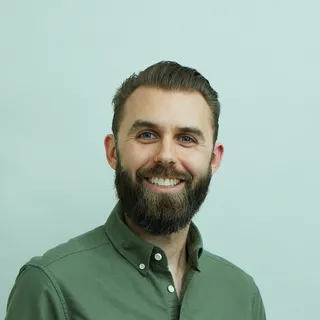Start With Why
People don’t buy WHAT you do, they buy WHY you do it.
Like many TED Talks before it, Simon Sinek’s “Start With Why” finally hit me on a repeat viewing. If you haven’t seen it yet, watch the video on YouTube.
Sinek’s Golden Cirle of why, how, and what is a more logical framework to me than the Rockefeller Habits’ Core Purpose and Core Values.
As Tortuga grows (9 and counting!), my focus is shifting towards building a great team and keeping us united around a common vision.
People don’t buy WHAT you do, they buy WHY you do it.
The above line, which Sinek comes back to multiple times in the talk, goes for customers buying your product as well as teammates buying into your vision.
We hire from We Work Remotely, not from Carryology, because we want teammates who believe what we believe, not just people who love bags.
Luggage is our WHAT, not our WHY.
Every single company and organization on the planet knows WHAT they do. This is true no matter how big or small, no matter what industry. Everyone is easily able to describe the products or services a company sells or the job function they have within that system. WHATs are easy to identify.
The right WHAT is imperative to building a company. Without a good product that people want, your WHY won’t matter.
However, your WHAT may change. The market may shift. Technology may change. Your WHAT is temporary. Your WHY should endure.
For example, if the airline industry eliminated overhead bins and banned carry on luggage, our WHAT would have to change. We could no longer make carry-on-sized travel backpacks. As long as our WHY was constant, we could still keep our team together and sell different products to our past customers, because both believe what we believe. WHAT we sell is secondary.
HOWs are your values or principles that guide HOW to bring your cause to life. HOW we do things manifests in the systems and processes within an organization and the culture. Understanding HOW you do things and, more importantly, having the discipline to hold the organization and all its employees accountable to those guiding principles enhances an organization’s ability to work to its natural strengths. Understanding HOW gives greater ability, for example, to hire people or find partners who will naturally thrive when working with you.
Sinek calls these your HOWs. In The Rockefeller Habits, Verne Harnish calls them your Core Values.
While I prefer Sinek’s methodology, the best way to get to your Values/HOWs is to read Jim Collins’ article Building Your Company’s Vision.
The important takeaway from Collins’ article is that your values should be unique to your company and should be a part of your company’s DNA. Your values should be so embedded into your operations that you would stick with them even if they became a detriment to your business.
Generic platitudes do not make good HOWs. If every company would agree with your methods, they aren’t your methods. Your HOWs should make at least some other companies think, “That would never work here…”
If your HOWs excite you but make other companies nervous, you’re on the right track.
The best example from Tortuga is working remotely. We aren’t the only distributed company, but most businesses would never consider going remote.
We allow everyone to work remotely, even if it makes work a bit harder. We work remotely even if time zones make scheduling calls difficult. We work remotely even though it makes physical product development harder.
Working remotely is part of our HOWs, so new teammates know the deal when they join. Remote product development is hard, but this is how we operate, so figure it out.
We believe that the benefits of remote work outweigh the inconveniences.
Very few people or companies can clearly articulate WHY they do WHAT they do. When I say WHY, I don’t mean to make money — that’s a result. By WHY I mean what is your purpose, cause or belief? WHY does your company exist? WHY do you get out of bed every morning? And WHY should anyone care?
Your WHY is your mission. Most mission statements are generic and meaningless so they get ignored. Considering your WHY is a good way to avoid the trap of writing a mission statement that no one remembers or cares about.
Our original WHY was focused on travel, which made sense because our WHAT is making travel backpacks. Our mission was:
To make travel easier and more enjoyable
As we’ve grown, I’ve realized that the WHY that we all care about is bigger than just travel. Taylor’s session on branding and messaging at our recent retreat made this even more apparent. One of our HOWs better captures our WHY:
To help people live (and work) on their own terms
For some, this means a life of travel. For others, it means working from home instead of reporting to an office. Everyone has their own version.
Working at Tortuga helps people realize this vision.
Everyone at Tortuga works remotely, sets their own hours, and is very autonomous (within the constraints of a team).
Our products should help others attain this same level of freedom. Today, we do that by building gear for urban travel. Tomorrow, our WHAT may change. Regardless of the WHAT, we will always be working towards our WHY.
Note: The quotes in this post are from Simon Sinek’s “Start With Why: How Great Leaders Inspire Everyone to Take Action.” You can get the book on Amazon or read my Kindle highlights.
Fred Perrotta Newsletter
Join the newsletter to receive the latest updates in your inbox.
